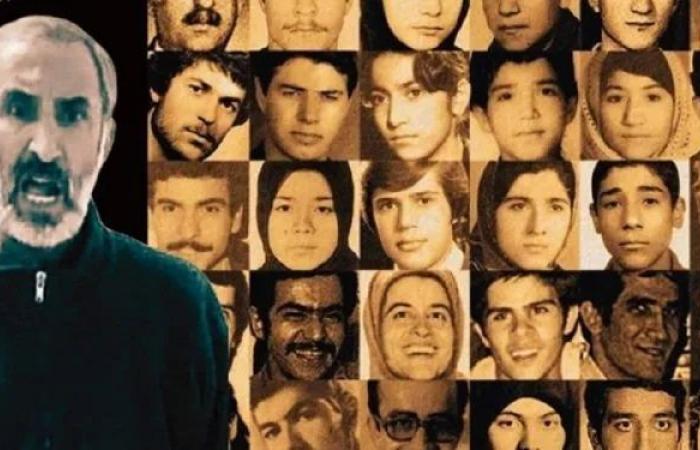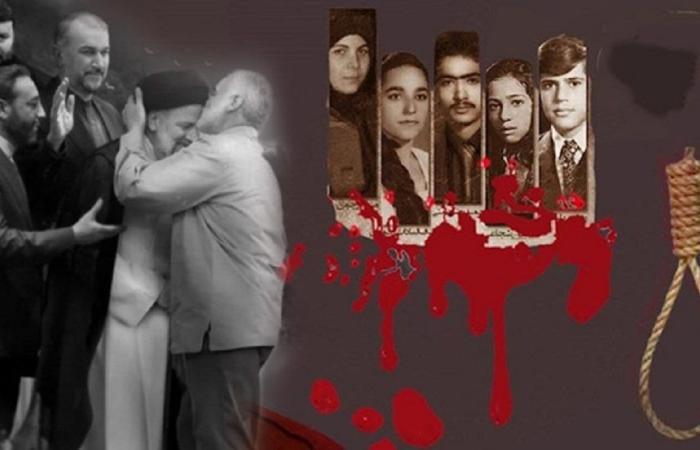Hamid Nouri participated in the mass murder of political prisoners in the 1980s.
CSDHI – The Iranian government’s ransom and hostage diplomacy led to the release of a dangerous criminal, Hamid Nouri.
The role of hostage diplomacy in the Iranian political landscape
Hamid Nouri was involved in the mass murder of political prisoners in the 1980s. The release of Hamid Nouri, torturer and killer of political prisoners, following a prisoner exchange with Sweden, sparked a wave of anger and of despair within the Iranian exile community, particularly those who survived the mass executions of 1988.
Ransom and hostage-taking diplomacy
On June 15, 2024, in an article titled “Sweden hands over perpetrator of massacre to Iran,” the Bild website reacted to the hostage-taking diplomacy. Bild quotes an expert on political and Iranian affairs: “In an interview with Bild, a political affairs expert called this action one of the lowest points in European history. He also viewed Sweden’s action as a horrifying signal of a morally corrupt European perspective that betrays its fundamental laws and human rights.
Sweden criticized for giving in to Iranian hostage diplomacy
Nouri was recognized as a criminal for his involvement in the horrific executions of political prisoners in 1988, in which 30,000 people lost their lives. This event is a dark point in the history of Iran. For many Iranians, especially survivors and exiles, it is a reminder of deep and incurable wounds on the human rights body.
Nouri’s trial and conviction in Sweden was the first time in history that one of the accused in the 1988 massacre was brought before a fair and impartial court. His release following a political agreement or hostage-taking diplomacy made many people doubt Europe’s commitment to justice and the rule of law.
Hostage-taking diplomacy: European commitment to justice called into question after Nouri’s release
Critics view the action as a capitulation to the Iranian government’s ransom and hostage-taking diplomacy. They fear that this release will encourage the regime to repeat such actions to achieve its goals.
Criticism and protests after prisoner exchange between Sweden and Iran
For many Iranian exiles, Nouri’s release is a symbol of the failure of justice for their missing loved ones. This reinforces their sense of despair and injustice and tarnishes their confidence in the international community.
Some exiles believe that justice will only be served by the brave children of Iran. These exiles consider that the action of Sweden, which surrendered under the blackmail of the Velayat-e Faqih government, is a betrayal of human rights.
Justice accused the criminal, the policy of appeasement freed the criminal
The Iranian people consider the West’s policy of appeasement with Khamenei’s bloody and criminal government as a betrayal of their highest interests. Hamid Nouri was sentenced to life in prison, then deported with a permanent ban on returning to Sweden and a fine of 1.2 million Swedish crowns (around 105,000 euros) for more than 100 murders, serious crimes against the laws international conventions, acts of torture and inhumane behavior. The court of appeal confirmed this verdict in December 2023.
Sweden releases Hamid Nouri, convicted of mass executions in 1988, in exchange for two men held by Iran
The Khamenei government widely resorts to hostage-taking diplomacy to continue its reign of terror and crime. In this regard, the Iranian government has a completely criminal human rights record. It is mainly for political purposes that he uses the lever of hostage-taking. The policy of appeasement, which has betrayed the Iranian people countless times, will never be forgotten. The Iranian people will bring all traitors to justice and prosecute them.
Conclusion
The Iranian government’s hostage diplomacy resulted in the release of Hamid Nouri, implicated in the mass murder of political prisoners in the 1980s, as part of a prisoner exchange with Sweden. This exchange sparked outrage among the Iranian exile community and critics, who see it as a moral failure for Europe, an attack on justice and human rights. Nouri’s release is seen as a capitulation to Iran’s tactics, raising concerns about Europe’s commitment to justice and the rule of law. Iranian exiles feel betrayed and vow to seek justice.
Source: Iran News Wire







